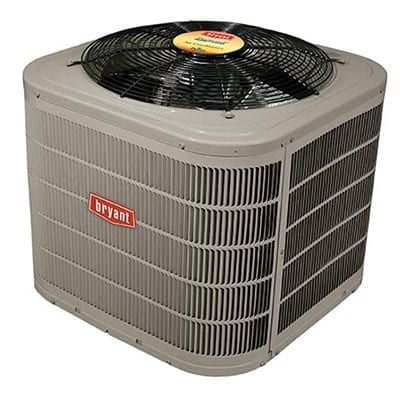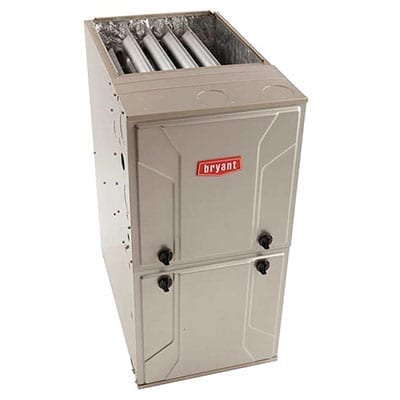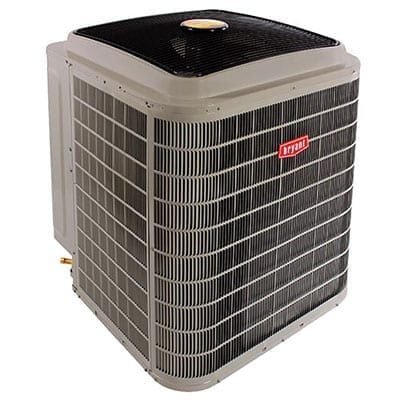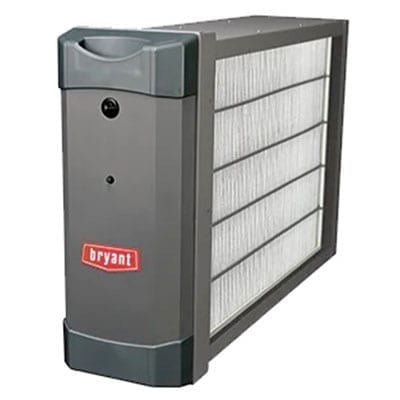Commercial HVAC for Theaters
Commercial HVAC systems, including air conditioning and air handlers, play a crucial role in maintaining optimal climate control in theaters and other commercial centers. The HVAC industry has continuously evolved to cater to the specific needs of commercial applications, including theaters. This post provides an overview of the significance of HVAC systems, air conditioning, in theaters and their impact on audience comfort, comfortable viewing experience, and equipment performance.
The importance of efficient climate control within theater spaces, including movie theaters, cannot be overstated, as it directly influences patrons’ comfort and overall experience. A brief exploration into the historical advancements in theater HVAC technology, including air conditioning, will shed light on how these systems have developed over time to meet the unique demands of theatrical environments.
The Role of HVAC in Enhancing Movie Theater Experience
Temperature Control
Commercial air conditioning HVAC for theaters plays a crucial role in enhancing the movie-watching experience by ensuring audience comfort. The temperature control provided by HVAC systems is essential for creating an enjoyable environment inside the theater. For instance, during hot summer days, a well-functioning air conditioning system can maintain a cool and pleasant atmosphere, preventing discomfort among moviegoers.
The ability to regulate temperature, air conditioning, and efficient HVAC systems also impacts audience retention and satisfaction. If the theater’s air conditioning is too cold or too warm, it can distract viewers from fully immersing themselves in the movie experience. A properly functioning HVAC system ensures that patrons in movie theaters are comfortable throughout the entire screening, allowing them to focus on enjoying the film without any environmental distractions.
Maintaining an optimal temperature through commercial HVAC systems, including air conditioning, significantly contributes to overall customer satisfaction at movie theaters.
Air Quality
In addition to temperature regulation and conditioning, commercial HVAC systems also impact air quality within theaters. Proper ventilation, efficient HVAC systems, and air filtration help in maintaining clean and fresh air for movie theaters’ audiences. Movie theaters not only contributes to audience comfort but also supports their health and wellbeing during extended periods spent inside the theater.
Adequate ventilation facilitated by commercial HVAC ensures that stale air is constantly replaced with fresh air, preventing stuffiness or unpleasant odors from developing within the movie theater space. Clean indoor air quality in movie theaters promotes a more enjoyable viewing experience for patrons while reducing potential discomfort caused by poor ventilation.
Key Features of High-Efficiency HVAC Systems for Theaters
Importance of Energy Efficiency
Highly efficient HVAC systems play a crucial role in theaters by ensuring optimal comfort for the audience while minimizing energy consumption. Air conditioning systems are designed to provide consistent temperature control, which is essential for creating an enjoyable movie-watching experience. By using advanced technologies, such as variable speed drives and programmable thermostats, these HVAC (air conditioning) systems can regulate the indoor climate more effectively, resulting in significant energy savings. Movie theaters benefit from efficient HVAC systems, which not only reduces operational costs for theater owners but also contributes to environmental sustainability by lowering carbon emissions.
In addition to temperature regulation, high-efficiency HVAC systems also prioritize energy conservation through features like zoned heating and cooling./// Theater operators can customize the climate control settings based on specific usage patterns and occupancy levels within movie theaters. For example, during peak hours in movie theaters when certain sections of the theater are densely populated, the HVAC system can automatically adjust airflow and temperature settings to accommodate higher demand without overworking or wasting energy in less frequented zones.
Advanced Filtration Systems
Another key feature of high-efficiency HVAC systems is their advanced filtration capabilities that significantly enhance indoor air quality within theaters. These hvac systems are equipped with specialized filters designed to capture airborne particles such as dust, pollen, and other pollutants commonly found in indoor environments. By removing these contaminants from the air circulation process, the HVAC system helps create a cleaner and healthier atmosphere for moviegoers.
Furthermore, some modern high-efficiency HVAC units in movie theaters incorporate additional air purification technologies such as UV germicidal lights or electrostatic filters that target bacteria and viruses present in the air. This extra layer of protection, including HVAC upgrades, not only improves overall air quality but also contributes to a safer environment by reducing the spread of airborne illnesses among patrons.
Customizable Controls
High-efficiency HVAC systems offer customizable controls tailored specifically for different spaces within theaters. Through intelligent zoning capabilities and programmable interfaces, these HVAC systems allow theater managers to fine-tune temperature settings based on individual auditoriums or lobbies’ unique requirements at various times throughout each day.
For instance:
-
During matinee showings when fewer seats are occupied compared to evening screenings,
-
Theater staff can program reduced heating or cooling levels,
-
To optimize energy efficiency without compromising comfort.
Benefits of Energy-Efficient HVAC in Movie Theaters
Cost Savings
Implementing energy-efficient HVAC systems in movie theaters results in significant energy savings. By reducing energy usage, these systems help theater owners cut down on operational costs, leading to substantial cost savings over time. For example, utilizing high-efficiency chillers and air handling units can significantly lower the overall energy consumption of a theater’s heating and cooling systems.
Theater owners can also benefit from reduced maintenance expenses as efficient HVAC systems tend to experience fewer issues compared to traditional ones. This not only saves money but also minimizes disruptions caused by unexpected breakdowns or repairs, ensuring seamless operations for the business.
Environmental Benefits
One of the most significant advantages of adopting commercial HVAC for theaters is its positive impact on the environment. The reduction in energy consumption directly translates into a decrease in greenhouse gas emissions and overall environmental footprint. For instance, modernizing ventilation and air conditioning equipment with more efficient models helps reduce reliance on fossil fuels, contributing to a healthier planet.
By embracing sustainable practices through energy-efficient technologies, movie theaters play a crucial role in promoting environmental stewardship within their communities. This commitment not only aligns with global efforts to combat climate change but also demonstrates corporate responsibility towards preserving natural resources for future generations.
Enhanced Reputation
Incorporating energy-efficient HVAC solutions allows theaters to enhance their reputation as environmentally conscious establishments committed to sustainable practices. This proactive approach resonates positively with environmentally aware patrons who appreciate businesses that prioritize eco-friendly initiatives.
Moreover, showcasing an unwavering dedication to sustainability can attract new customers who actively seek out businesses aligned with their values. By establishing itself as an advocate for responsible resource management and reduced carbon emissions, a movie theater can strengthen its brand image while fostering goodwill within its customer base and local community.
Revolutionizing Climate Control in Theaters with Advanced HVAC Upgrades
Enhanced Air Quality
Modern commercial HVAC systems offer improved air quality through advanced filtration and purification technologies. These upgrades ensure that the air inside theaters is free from pollutants, allergens, and other harmful particles. By implementing these solutions, older theaters can provide a healthier and more comfortable environment for patrons.
Theaters located in diverse climates can benefit from efficient HVAC upgrades that cater to varying temperature needs. For instance, in warmer regions, the upgraded systems can efficiently cool the indoor space to create a pleasant viewing experience for audiences. On the other hand, in colder climates, these systems are designed to effectively maintain optimal temperatures within the theater.
Energy Efficiency
One of the key advantages of modern HVAC solutions is their enhanced energy efficiency. By replacing outdated cooling products with newer models such as high-efficiency rooftop units or advanced air handlers, theaters can significantly reduce their energy consumption while still maintaining ideal indoor temperatures. This not only leads to cost savings but also contributes to lowering carbon emissions associated with excessive energy usage.
-
Improved air quality through advanced filtration and purification technologies
-
Efficient temperature regulation catering to diverse climate needs
Older theaters often face challenges related to outdated infrastructure and inefficient climate control mechanisms. However, by embracing modern HVAC upgrades, these establishments have an opportunity to revolutionize their approach towards climate control while offering enhanced comfort and well-being for moviegoers.
Smart Thermostats and Zoning for Optimized Theater Comfort
Benefits of Zoning
Commercial HVAC systems in theaters can benefit significantly from zoning. By dividing the theater into different zones, each area can have its own temperature settings. This means that the lobby, auditorium, and individual screening rooms can be set to their optimal temperatures independently. For example, while the lobby may require a warmer temperature to keep patrons comfortable as they enter or exit the building, screening rooms may need cooler temperatures for a comfortable viewing experience.
Zoning also allows for energy efficiency, as it prevents unnecessary heating or cooling of unoccupied spaces. When certain areas are not in use during non-peak hours, the HVAC system can automatically adjust to save energy and reduce operational costs.
In addition to energy savings, zoning contributes to maintaining an ideal environment throughout various spaces within the theater. It ensures that patrons enjoy consistent comfort levels no matter where they are in the building.
Precision Control with Smart Thermostats
The integration of smart thermostats into commercial HVAC systems offers precise control over temperature settings. These advanced thermostats enable theater management to monitor and adjust temperatures remotely through connected devices such as smartphones or tablets.
Smart thermostats also provide data insights on heating and cooling patterns within different areas of the theater. This information helps identify trends and optimize temperature settings based on specific usage patterns. For instance, if a particular screening room tends to heat up quickly when at full capacity, adjustments can be made proactively using data gathered from smart thermostat reports.
By leveraging these insights, theaters can ensure that guest comfort is consistently maintained by preemptively addressing any potential fluctuations in temperature across various spaces within the establishment.
Personalized Comfort Options for Patrons
One significant advantage of utilizing smart thermostats alongside zoning capabilities is providing personalized comfort options for patrons. The ability to cater to individual preferences enhances guest satisfaction during their visit to the theater.
For example:
-
Patrons who tend to feel warm easily might appreciate cooler temperatures in their seating area.
-
Guests who prefer a slightly warmer environment could have customized settings implemented based on their seat selection.
This level of personalization contributes positively towards creating an enjoyable atmosphere that aligns with diverse guest preferences.
Heat Recovery Systems: Elevating Theater HVAC Efficiency
Utilizing Waste Heat for Energy Conservation
Commercial HVAC systems in theaters can significantly benefit from the implementation of heat recovery systems. These innovative solutions allow theaters to capture and reuse waste heat, which would otherwise be lost during the heating or cooling process. By capturing this waste heat, theaters can effectively reduce their energy consumption, leading to substantial cost savings and environmental benefits.
Heat recovery systems work by extracting excess heat from areas within the theater that require cooling and transferring it to spaces that need heating. This process not only results in more efficient temperature control but also contributes to a reduced reliance on traditional heating and cooling methods. Consequently, theaters can lessen their overall energy usage while still ensuring optimal comfort for patrons.
Implementing heat pumps as part of a theater’s HVAC system is an excellent way to harness waste heat for energy conservation. For instance, in colder months, a heat pump extracts warmth from outdoor air and transfers it indoors. Conversely, during warmer periods, it reverses its operation by removing indoor warmth and releasing it outside. This cycle allows theaters to make use of ambient thermal energy efficiently.
Reduced Carbon Footprint with Heat Recovery Systems
The integration of split systems equipped with advanced heat recovery technology enables theaters to minimize their carbon footprint significantly. By utilizing captured waste heat instead of relying solely on conventional heating methods powered by fossil fuels or electricity generated from non-renewable sources, theaters can substantially decrease their environmental impact.
Furthermore, when compared to traditional HVAC setups without dedicated mechanisms for recycling waste heat, systems incorporating sophisticated energy recovery components are instrumental in reducing greenhouse gas emissions associated with excessive energy consumption. As a result, these environmentally friendly practices align with global efforts towards sustainability and climate change mitigation.
Enhanced Efficiency through Heat Exchange Technology One key aspect contributing to the enhanced efficiency brought about by commercial HVAC systems featuring integrated heat recovery capabilities is the utilization of cutting-edge heat exchange technology. The incorporation of specialized components such as enthalpy wheels or plate exchangers facilitates the transfer of thermal energy between incoming fresh air and outgoing exhaust air streams within the ventilation system.
This process ensures that valuable warmth extracted from exhaust air is transferred back into incoming fresh air before being distributed throughout the theater space—thereby optimizing both temperature management and resource utilization simultaneously.
VRF Technology: The Future of Theater Climate Management
Overview of Variable Refrigerant Flow (VRF) Systems
A Variable Refrigerant Flow (VRF) system is an advanced technology that provides heating and cooling to different zones within a building. It uses refrigerant as the cooling and heating medium, allowing for precise temperature control in individual areas. In theaters, where maintaining optimal climate conditions is crucial, VRF systems offer significant advantages over traditional HVAC systems.
VRF systems consist of an outdoor unit connected to multiple indoor units, each with its own thermostat for independent temperature regulation. This setup allows theaters to create distinct climate zones throughout the facility, ensuring audience comfort and energy efficiency simultaneously.
The flexibility and adaptability of VRF technology make it ideal for theaters with fluctuating occupancy levels. During peak hours when the theater is filled with patrons, the system can efficiently cool or heat specific areas without affecting others. Conversely, during off-peak times or intermissions when certain sections are unoccupied, the VRF system can adjust accordingly to conserve energy without compromising comfort.
Advantages of VRF Technology in Theaters
One key advantage of VRF technology in theaters is its ability to provide simultaneous heating and cooling. This feature enables different parts of the theater to be heated while others are being cooled based on their individual requirements. For instance, while audiences may need a cooler environment inside the auditoriums due to body heat and lighting fixtures, lobbies or backstage areas might require heating at the same time.
Another notable benefit lies in the scalability of VRF systems. As theaters expand or undergo renovations, additional indoor units can be seamlessly integrated into the existing setup without major modifications or disruptions to ongoing operations. This scalability ensures that theaters can easily adapt their HVAC infrastructure according to changing spatial configurations or seating capacities.
Moreover, VRF technology offers superior energy efficiency compared to conventional HVAC solutions by utilizing variable-speed compressors that match output precisely with current demand levels. By adjusting capacity based on real-time needs instead of operating at full throttle constantly like traditional systems do, VFR reduces unnecessary energy consumption and minimizes utility costs for theater operators.
Preventative Maintenance: Ensuring Reliability in Theater HVAC Systems
Extending Lifespan
Regular maintenance is crucial for commercial HVAC systems in theaters. By conducting routine upkeep, theater owners can extend the lifespan of their HVAC equipment. This means the systems will last longer before needing to be replaced.
By maintaining these systems, theater owners can avoid costly replacements and repairs that come with aging or neglected equipment. For example, cleaning or replacing air filters regularly reduces strain on the system, extending its life.
Minimizing Downtime
Proactive maintenance also minimizes downtime and disruptions in theater operations. Imagine if a theater’s HVAC system fails during a sold-out show; it would lead to discomfort for patrons and potential loss of revenue.
Routine inspections and upkeep help identify issues before they escalate into major problems, ensuring uninterrupted comfort for patrons at all times. For instance, checking refrigerant levels prevents sudden breakdowns due to low levels.
Regular maintenance not only extends the life of the HVAC system but also ensures continuous comfort for theatergoers without any unexpected interruptions.
Innovations in Commercial HVAC for Theaters
Streamlined Climate Control
The integration of IoT in commercial HVAC equipment for theaters has revolutionized climate control. Theater owners can now remotely monitor and adjust the temperature, humidity, and air quality in their commercial space. The IoT-enabled sensors provide real-time data, allowing for proactive maintenance to ensure optimal comfort for patrons.
This innovation not only enhances the theater experience but also contributes to energy efficiency. For instance, if a theater is not at full capacity, the system can automatically adjust the climate settings to conserve energy without compromising comfort. This level of automation ensures that theater owners can create a comfortable environment while minimizing operational costs.
Enhanced Operational Efficiency
The implementation of automation in theater-specific HVAC solutions has significantly improved operational efficiency. Automated systems can regulate airflow based on occupancy levels and schedule regular maintenance tasks such as filter replacements and system diagnostics.
For example, automated HVAC systems can detect when a particular area of the theater becomes crowded during peak hours or events and adjust the airflow accordingly to maintain an optimal environment. This level of responsiveness not only ensures consistent comfort but also prolongs the lifespan of the HVAC equipment by reducing unnecessary strain.
Tailored Design Considerations
The latest advancements in commercial HVAC equipment take into account specific requirements unique to theaters. These tailored solutions consider factors such as acoustics, air distribution patterns, and zoning capabilities to cater to the distinct needs of theatrical spaces.
For instance, advanced ductwork designs are implemented to minimize noise transmission within auditoriums while providing efficient heating and cooling throughout different areas within a theater complex. Zoning capabilities allow for precise control over temperature variations in various sections like lobbies, concession stands, auditoriums, and dressing rooms.
Air Quality Enhancement
Continuous improvement efforts also focus on enhancing air quality within theaters through specialized filtration systems designed specifically for large commercial buildings with high occupancy rates. These advanced filtration technologies effectively capture airborne particles including dust mites, pollen spores, mold spores from carpeting or upholstery materials often found in theaters which contribute positively towards creating a healthier indoor environment for both patrons and staff members.
Conclusion
The advancements in commercial HVAC systems for theaters offer a compelling array of benefits, from enhancing audience comfort to optimizing energy efficiency. High-efficiency HVAC systems, smart thermostats, heat recovery systems, VRF technology, and proactive maintenance all play pivotal roles in revolutionizing climate control within theaters. These innovations not only elevate the moviegoer experience but also contribute to sustainability efforts and operational cost savings for theater owners. Embracing these technologies is crucial for theaters aiming to stay competitive while prioritizing environmental responsibility.
For theater managers and owners seeking to elevate their establishments, integrating advanced HVAC solutions is a strategic imperative. By leveraging these cutting-edge technologies, theaters can achieve superior comfort, energy efficiency, and long-term cost savings. It’s essential to partner with experienced HVAC professionals to tailor solutions that align with the unique requirements of each theater, ensuring optimal performance and customer satisfaction.
Frequently Asked Questions
What are the key features of high-efficiency HVAC systems for theaters?
High-efficiency HVAC systems for theaters typically include variable speed drives, advanced filtration, and zoning capabilities. These features ensure precise climate control, energy savings, and improved air quality for an enhanced movie-watching experience.
How do smart thermostats and zoning optimize theater comfort?
Smart thermostats and zoning allow precise temperature regulation in different areas of the theater based on occupancy and usage patterns. This optimization not only enhances comfort but also contributes to energy efficiency by avoiding unnecessary heating or cooling.
What is VRF technology in the context of theater climate management?
VRF (Variable Refrigerant Flow) technology offers simultaneous heating and cooling with individualized control for different zones within a theater. It provides efficient operation, flexibility, and quiet performance while maintaining optimal indoor conditions throughout the facility.
Why is preventative maintenance crucial for reliability in theater HVAC systems?
Preventative maintenance ensures that all components of a theater’s HVAC system are functioning optimally. Regular inspections, cleaning, and servicing help prevent unexpected breakdowns or malfunctions during peak operating times such as movie screenings.
What innovations are shaping commercial HVAC for theaters?
Innovations such as heat recovery systems, advanced filtration technologies, integration with building automation systems (BAS), and IoT-enabled monitoring tools are revolutionizing commercial HVAC for theaters. These advancements aim to improve energy efficiency, indoor air quality, and overall operational performance.
Related Information
Commercial HVAC for Travel Agencies
Commercial HVAC for Toy Stores
Commercial HVAC for Tool Rental Services
Commercial HVAC for Tobacco Shops
Commercial HVAC for Technology Firms
Commercial HVAC for Tea Houses
Commercial HVAC for Tattoo Parlors
Commercial HVAC for Tanning Salons
Commercial HVAC for Tailoring Shops
The Primary Services Provided By Our Local HVAC Company
Areas We Service
Click on the area below to see what your neighbors are saying about their recent experiences with our company.
Our Locations
14913 SE Kellogg Ave
Milwaukie, OR 97267, USA
4409 SE 24th Ave, Suite 35
Portland, OR 97202, USA




